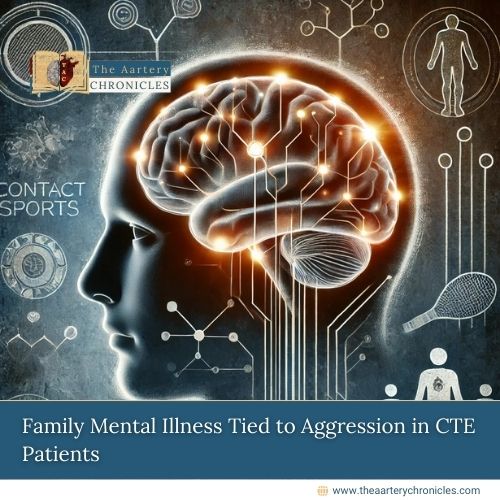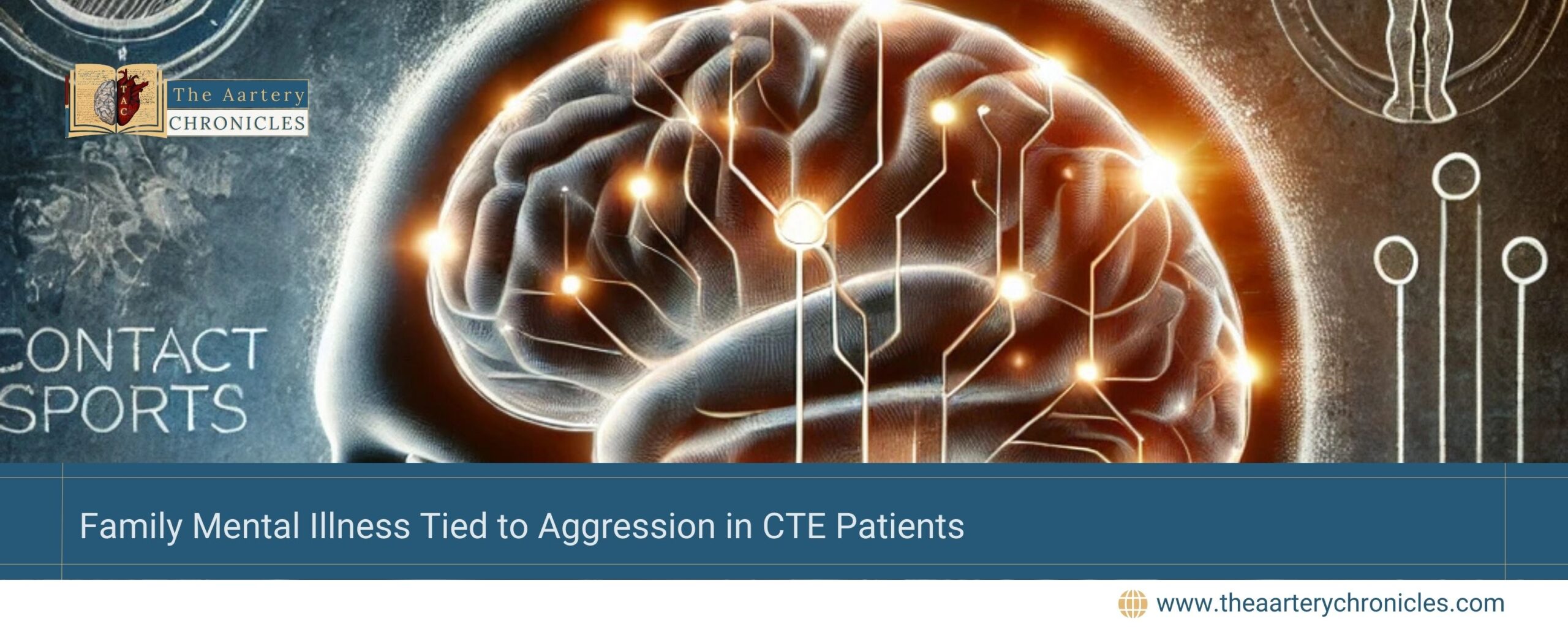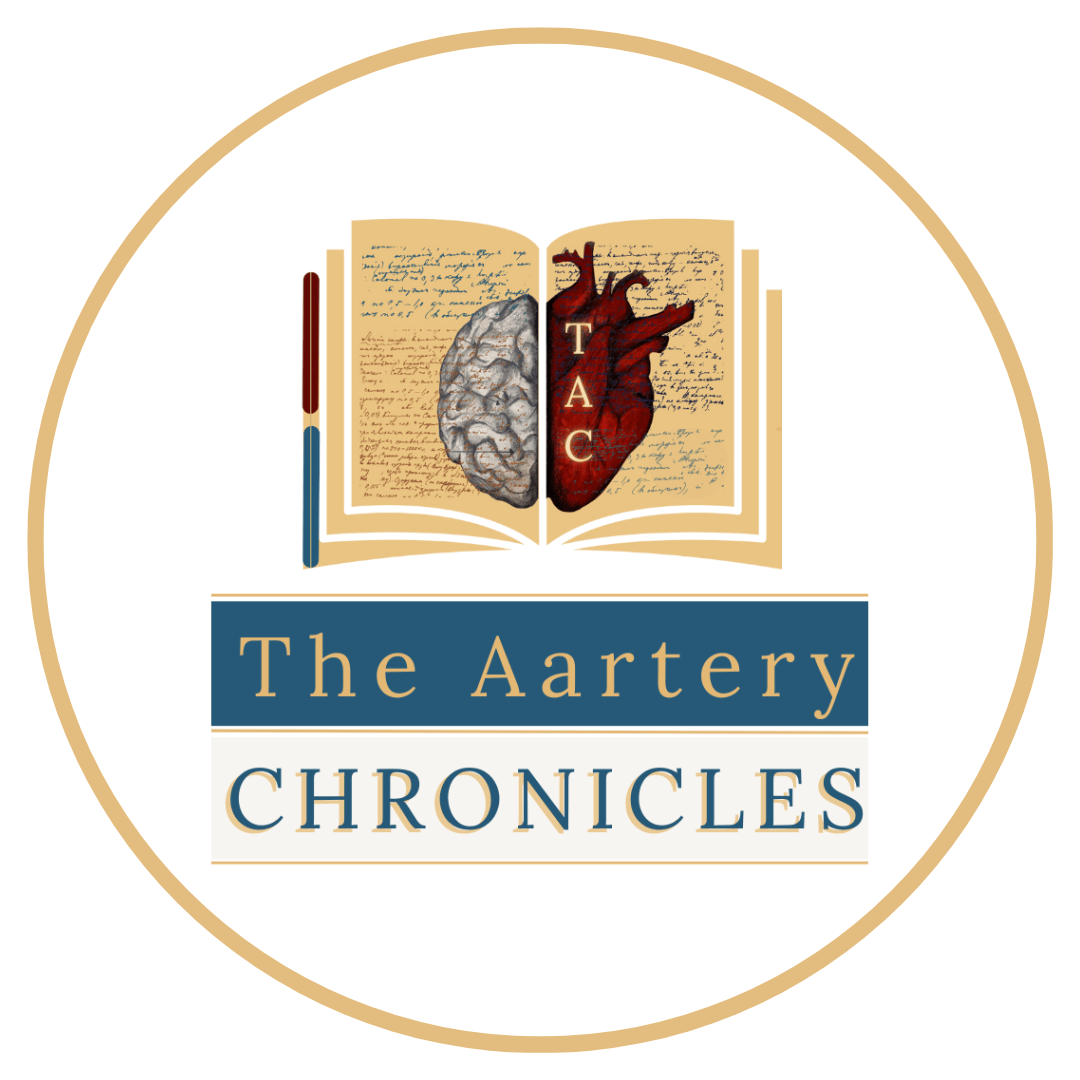

Family Mental Illness Tied to Aggression in CTE Patients: What You Need to Know
A recent study highlights a link between chronic traumatic encephalopathy (CTE) and aggressive behaviour in middle age for those with a family history of mental illness. Published in the Neurology journal, the findings reveal how a combination of risk factors might amplify aggression in affected individuals.
What Is CTE?
Chronic traumatic encephalopathy (CTE) is a progressive brain disorder caused by repeated head injuries. It leads to degeneration of nerve cells in the brain and progressively worsens over time. Unlike a single head injury, CTE is associated with cumulative trauma often linked to
- Contact sports, such as football and boxing
- Military combat involving exposure to explosive blasts
Currently, CTE can only be definitively diagnosed after death during a brain autopsy. Researchers are developing diagnostic biomarkers, but none have been validated yet. Symptoms of CTE typically appear years or even decades after the head trauma and may include
- Cognitive impairments
- Behavioural changes
- Mood disorders
- Motor impairments
The Study in Brief
The research analysed 845 men exposed to repetitive head impacts, such as from contact sports or military service. Among them, 70% were diagnosed with CTE, and 45% had a family history of mental illness. The average age of participants at death was 60, and their donated brains were studied posthumously.
Key findings of CTE study include
- Aggression Levels: Participants with both CTE and a family history of mental illness exhibited higher aggression scores (average 19) than those with just CTE (average 17).
- Age Factor: This link was most evident in individuals who passed away between the ages of 40 and 59.
- Family Mental Health History: A family history of mental illnesses, was linked to higher aggression in middle-aged CTE patients, such as
How the Study Worked
Researchers grouped participants into four categories:
- CTE with a family history of mental illness (30%)
- CTE without a family history (40%)
- No CTE but with a family history (15%)
- No CTE and no family history (15%)
They assessed participants’ aggression levels based on reports from family members, examining behaviours such as
- Severe arguments
- Physical altercations
After adjusting for factors like contact sports duration and military history, the data showed a significant increase in aggression scores for individuals with CTE and a family history of mental illness, particularly those who died between ages 40 and 59.
Why Family History Matters
The study suggests a shared genetic or environmental background might explain the connection between family mental illness and aggression. For instance, childhood experiences or inherited traits may contribute to this heightened risk.
Identifying individuals with a higher likelihood of aggression based on their family history could pave the way for better-targeted interventions and treatments for those with CTE.
Study Limitations
While the findings are significant, the study relied on information from family members and spouses, which could be subject to recall bias.
The National Institutes of Health, the Department of Veterans Affairs, and the Nick and Lynn Buoniconti Foundation funded the research.
Source:
1. Inputs from various media Sources
2.Melissa Shuman Paretsky, David Q. Beversdorf. Examining the Link Between Chronic Traumatic Encephalopathy, Family History of Mental Illness, and Aggression in Brain Donors With Repetitive Head Impacts. Neurology, 2024; 103 (12) DOI: 10.1212/WNL.0000000000210201









